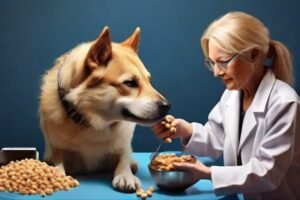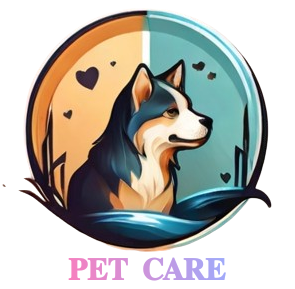
In take of perfect nutrition & minerals
Nutrients and Minerals
- Vitamin A:
- Capability: Supports vision, insusceptible framework, and skin wellbeing.
- Sources: Liver, carrots, yams, and salad greens.
- Suggested Day to day Sum: Canines need around 5,000-8,000 IU each day.
- Vitamin D:
- Capability: Fundamental for bone wellbeing and calcium assimilation.
- Sources: Daylight (canines can orchestrate it), greasy fish, and strengthened food varieties.
- Suggested Day to day Sum: Roughly 200-400 IU.
- Vitamin E:
- Capability: A cancer prevention agent that safeguards cells from harm.
- Sources: Nuts, seeds, and vegetable oils.
- Suggested Day to day Sum: Around 15-30 IU.
- B-complex Nutrients:
- Incorporates B1 (thiamine), B2 (riboflavin), B3 (niacin), B5 (pantothenic corrosive), B6 (pyridoxine), B7 (biotin), B9 (folate), and B12 (cobalamin).
- Capabilities: Help in digestion, energy creation, and generally prosperity.
- Sources: Meat, fish, eggs, entire grains, and vegetables
-
Minerals
- Calcium:
- Capability: Essential for bone wellbeing, muscle capability, and blood coagulating.
- Sources: Dairy items, fish with bones, and salad greens.
- Suggested Day to day Sum: Canines need roughly 1,000-1,500 mg each day.
- Phosphorus:
- Capability: Works with calcium for solid bones and teeth.
- Sources: Meat, poultry, fish, and dairy.
- Suggested Day to day Sum: Approximately 800-1,200 mg.
- Iron:
- Capability: Significant for oxygen transport (hemoglobin creation).
- Sources: Red meat, liver, and strengthened oats.
- Suggested Everyday Sum: Canines need around 10-20 mg.
- Zinc:
- Capability: Supports insusceptible capability, skin wellbeing, and wound mending.
- Sources: Meat, dairy, nuts, and vegetables.
- Suggested Everyday Sum: Roughly 15-30 mg.
Protein Pals: A Guide to Pet Nutrition

Proteins Capability
- Pivotal for muscle advancement, fix, and insusceptible capability.
- Sources: Great creature based proteins like chicken, meat, fish, and eggs.
- Suggested Day to day Sum: Roughly 18-25% of your canine’s all out caloric admission.
-
Fats
- Capability: Give energy, support skin wellbeing, and help in supplement retention.
- Sources: Fish oil, flaxseed, chicken fat, and other solid fats.
- Suggested Day to day Sum: Around 10-15% of absolute calories.
-
Starches
- Capability: Offer energy and fiber.
- Sources: Entire grains (earthy colored rice, oats), vegetables (yams, peas), and organic products (blueberries, apples).
- Suggested Day to day Sum: Shifts in view of movement level and individual requirements.
-
Nutrients
- Vitamin A: Supports vision, safe framework, and skin wellbeing.
- Vitamin D: Fundamental for bone wellbeing.
- Vitamin E: A cancer prevention agent that safeguards cells.
- B-complex Nutrients: Help in digestion and by and large prosperity.
-
Minerals
- Calcium: Imperative for bone wellbeing and muscle capability.
- Phosphorus: Works with calcium for solid bones.
- Iron: Significant for oxygen transport.
- Zinc: Supports invulnerable capability and skin wellbeing.
- Water:
- Capability: Hydration, temperature guideline, and absorption.
- Day to day Necessity: Canines need around 1 ounce of water for every pound of bo
Balanced Diets for Furry Friends: Understanding Macronutrients for Pets

Macronutrients
- Proteins: These are fundamental for muscle development, fix, and in general wellbeing. Top notch creature based proteins (like chicken, meat, or fish) give the important amino acids.
- Fats: Canines need sound fats for energy, skin wellbeing, and supplement retention. Sources incorporate fish oil, flaxseed, and chicken fat.
- Carbs: While canines don’t need as numerous carbs as people, they actually benefit from entire grains (like earthy colored rice or oats) and vegetables.
-
Micronutrients
- Nutrients: Canines need nutrients like A, D, E, and B-complex nutrients. These assume parts in vision, resistant capability, and in general prosperity.
- Minerals: Fundamental minerals incorporate calcium, phosphorus, iron, and zinc. They support bone wellbeing, blood coagulating, and chemical capability.
-
Water
- Hydration is critical! New water ought to continuously be accessible to your canine. Lack of hydration can prompt serious medical problems.
-
Business Canine Food
- Search for top notch canine food with an equilibrium of supplements. Understand names and pick marks that meet AAFCO (Relationship of American Feed Control Authorities) norms.
- Think about your canine’s age (little dog, grown-up, or senior), size, and movement level while choosing food.
- Hand crafted Feasts:
- Assuming you plan natively constructed canine food, guarantee it’s healthfully finished.
- Counsel your vet to make a reasonable recipe. Incorporate protein, veggies, grains, and solid fats.
-
Segment Control
- Overloading can prompt corpulence. Adhere to taking care of rules in view of your canine’s weight and action level.
- Partition day to day divides into dinners (typically 2-3 times each day).
- Unique Weight control plans:
- A few canines have explicit dietary requirements (e.g., sans grain, hypoallergenic, or weight the executives).
- Examine any extraordinary prerequisites with your vet.
Crafting the Perfect Diet: Tailoring Nutrition for Your Beloved Pet

Adjusted Diet
- Canines require a balanced mix of carbs, fats, proteins, nutrients, and minerals to flourish.
- A fair eating routine guarantees your canine gets the vital supplements for by and large wellbeing.
Fundamental Supplements
- Proteins: Indispensable for muscle improvement, fix, and resistant capability. Top notch creature based proteins are great.
- Fats: Give energy, support skin wellbeing, and help in supplement assimilation.
- Carbs: Offer energy and fiber. Entire grains and vegetables are great sources.
- Nutrients and Minerals: Fundamental for different physical processes.
- Water: Hydration is vital; consistently give new water.
Picking Canine Food
- Search for canine food that contains an equilibrium of meat, vegetables, grains, and natural products.
- Non-meat food sources (like grains, natural products, and veggies) contribute fundamental nutrients, minerals, and fiber1.
- Taking care of Timetable:
- Lay out an ordinary taking care of schedule. Consistency is vital.
- Counsel your veterinarian to decide the proper part size in view of your canine’s age, size, and movement level.









